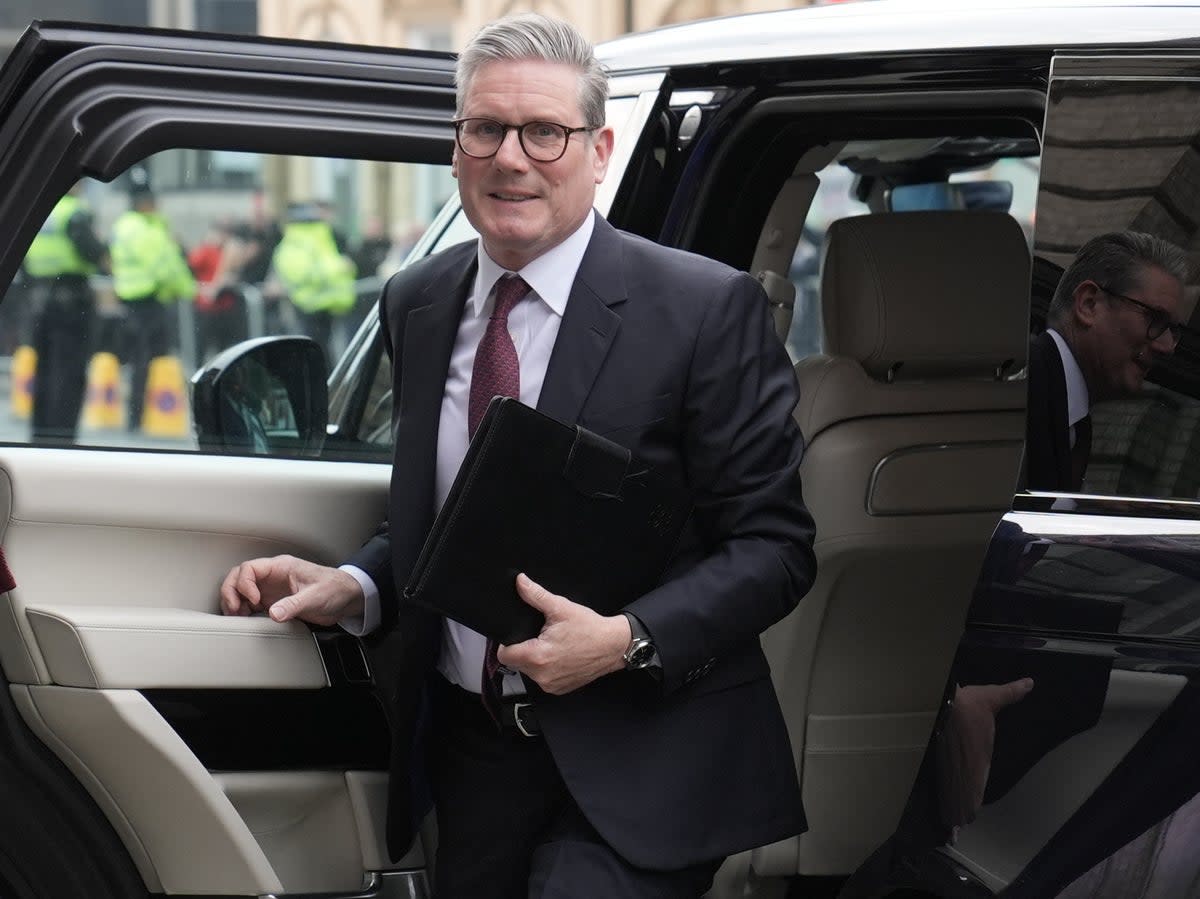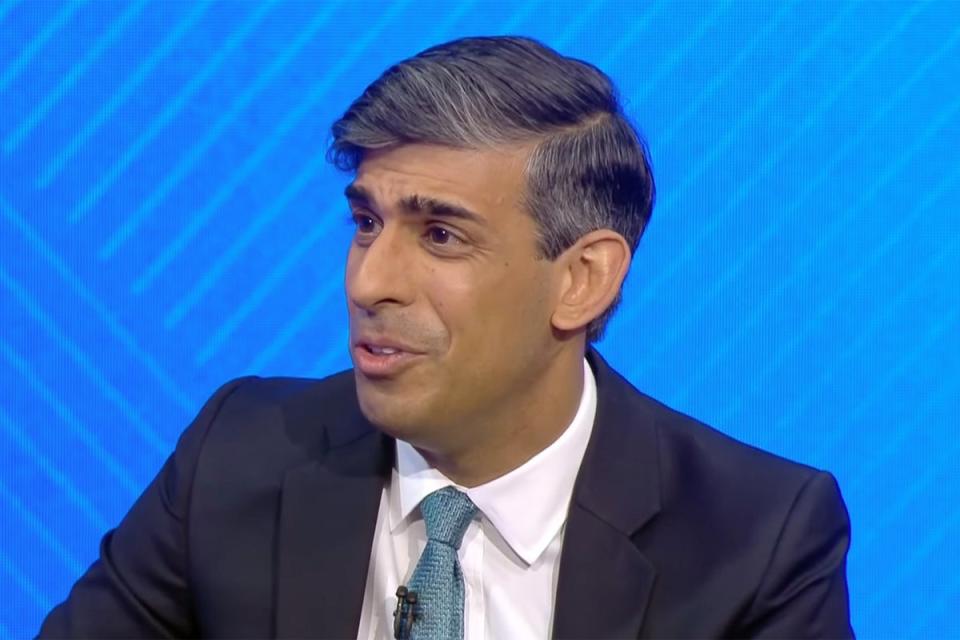Keir Starmer to pledge wealth creation as ‘number one priority’ in Labour election manifesto

Keir Starmer will pledge to lead a government whose number one priority is wealth creation after Rishi Sunak was forced to deny he had accepted defeat in the general election.
The Labour leader said his No 10 would be “pro-business and pro-worker” as he seeks to woo disaffected Tory voters with a manifesto designed to rescue the UK’s flatlining economy.
A defiant prime minister, meanwhile, said he had “absolutely not” given up on winning after one of his most senior ministers appeared to concede.
The extraordinary denial came after the defence secretary Grant Shapps urged voters not to give Labour a “supermajority” on polling day.
Growing the economy at the same rate as the last Labour administration would mean an extra £70bn for public services, Sir Keir said.
In a direct appeal to voters he also said the party’s manifesto “represents a total change in direction, that is laser-focused on our cause”.
He would lead “a government back in the service of you and your family,” he added.
The economy forms the lynchpin of the Labour party’s pitch to voters, which will be unveiled at an event in Manchester on Thursday, after Labour made economic stability the first of its six “first steps” for government.
Thursday’s headline announcement is expected to include a pledge to cap corporation tax at its current rate of 25 per cent to give businesses long-term certainty, the latest in a series of pledges not to raise tax.

Labour has already ruled out raising rates of income tax, national insurance or VAT, and said the manifesto will contain no tax rises that have not already been announced.
Those increases are charging VAT on private school fees, abolishing the non-dom tax status and closing “loopholes” in the windfall tax on oil and gas companies.
Sir Keir is expected to say: “Wealth creation is our number one priority. Growth is our core business – the end and the means of national renewal.
“The mandate we seek from Britain at this election is for economic growth. This changed Labour Party has a plan for growth. We are pro-business and pro-worker, the party of wealth creation.”
The Labour leader is expected to argue against the idea that “how you grow the economy is not the central question”.
The manifesto is set to include promises to “unleash investment” through GB Energy, a new state-owned organisation investing in clean power, and reformed planning rules to help build new infrastructure and 1.5 million homes.
More power will be granted for local government as part of Labour’s commitment to devolve decision-making away from Westminster, as well as a series of measures introduced to overhaul workers’ rights.
Labour’s six “first steps” have been broadcasted extensively on the campaign trail over the past three weeks and are likely to form the centrepiece of the manifesto.
On top of the pledge to provide economic stability, those first steps include cutting NHS waiting lists with 40,000 new appointments per week, setting up a Border Security Command, establishing GB Energy, cracking down on antisocial behaviour and hiring 6,500 teachers.
On foreign policy, Labour has promised it will keep backing Ukraine against Russia. Politicians from Ukraine’s government, the Verkhovna Rada, have told The Independent during recent visits to London that they have received assurances from the Conservatives, the Labour Party and the Liberal Democrats that UK assistance for Ukraine will not abate.
Following criticism from some parts of the party about its approach to the conflict in the Middle East, Labour has said it will support recognising a Palestinian state as part of a peace process.
The party has said it will aim to spend 2.5 per cent of GDP on defence but it has not put a date on reaching the target.

 Yahoo News
Yahoo News 
